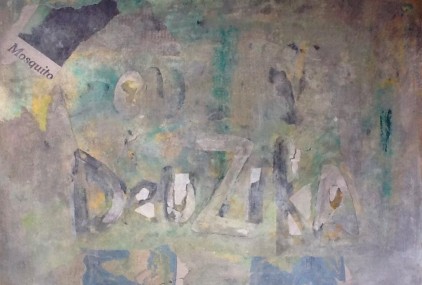
Queer Crossings: a participatory arts based project
This anthology is the first time that lesbian, gay, bisexual, transgender, and queer (LGBTQ) migrants and refugees in South Africa have shared their stories and
As the Brazilian crisis unfolds, the abortion frontlines keep burning
Since our reports of early 2015, SPW has always linked developments in the abortion debate to the on-going Brazilian political and economic crisis. On April 17th, 2016, this crisis reached an initial point of culmination when the House of Representatives voted for and approved the admissibility of the impeachment of President Dilma Rousseff.

An unamed letter from Bangladesh regarding the murders of LGBT activists
SPW shares an unnamed letter written by Bangladesh activist after the murders of LGBT activists in the Asian country in the past weeks. The letter

Why the Panama Papers are a feminist issue
The world is talking about tax this week, so here’s another tax story for you. Asana Abugre has a small shop in Accra, Ghana where she makes and sells batiks and tie-dyed textiles. Asana pays her taxes regularly. Women like her, working in markets across the city, sometimes pay up to 37% of their income in tax.
Let’s be diverse but docile: The “Revolution of joy” has arrived A few reflections on the new Argentinean government’s sexual politics
In an article written for SPW, Alejandra Sardá-Chandiramani, from Akahatá, analyzes the sexual politics scenario after the 2015 elections. In her own words: The open
Brazilian abortion politics: An update
During 2015, as previously reported by SPW, Brazilian abortion politics continued to evolve under pressures created by the unsettled intersection of regressive policy trends (which have been gaining strength since the mid 2000’s) and the macro-political crisis which has overtaken the Brazilian res publica.
Lebanon: How Public Health Can Affect LGBT Rights
When I think about LGBT rights in Lebanon, a swinging pendulum comes to mind. Slow progress met with backlash and arbitrary detention. Article 534 of the penal code, a remnant from French colonization, criminalizes same-sex relationship; similar laws of indecency also criminalize transgender populations.

Civil Society from the BRICS: Emerging Roles in the New International Development Landscape
This report focuses on ‘civil society’ in just one of the many senses in which the term is used: the sense summarised by Edwards (2009) as referring to ‘the world of associational life’ (rather than alternative conceptualisations of civil society as ‘the good society’ or ‘the public sphere’).

The ‘Family ” goes beaching
In late 2015, a highly regressive ‘Statute on the Family’ was approved by a Special Committee of the Brazilian Congress. Around that same time, the

Mozambique’s Double Speak on LGBT Rights
When Mozambique’s human rights record was reviewed before the United Nations Human Rights Council in Geneva this week, the government’s inconsistency on homosexuality was in full view.




